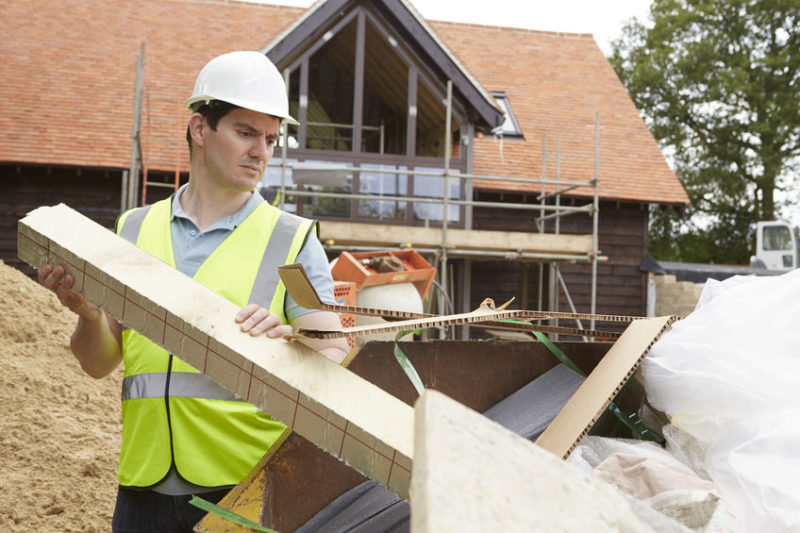The waste management hierarchy aims to reduce, reuse, and recycle waste products before they can be disposed of. Not only does it help to minimize its environmental impact but also decreases the demands placed on our local landfills. This article looks at some of the ways to deal with construction waste.
- Reducing Construction Waste

Avoid ordering excess materials than what is needed before setting. Materials that were damaged during transit should be returned to the supplier to prevent them from becoming your responsibility. Move materials as little as possible around the site to avoid breakages during movement as it can cause materials to be unusable.
- Re-Using Waste Materials
If you cannot reduce the amount of waste generation, consider re-using it for a different purpose or project. This can be done on-site or by channeling it to a third party. Materials associated with temporary works such as safety doors, handrails, and timber hoarding can be fixed so that they can be dismantled and re-used as often as possible. Instead of adhesives and sealants, use mechanical fasteners such as nails, screws, and bolts. Off-cuts can be collected and reused before using new materials. If construction materials cannot be re-used on-site, consider selling, donating, or returning them to the supplier. Use local re-use networks or engage with local schools and charities to determine outlets for material re-use.
- Recycling Waste Products
If construction waste cannot be reduced of reused then it should be set aside for recycling if possible. It may require some extra effort and training to conduct on-site separation of materials that can be recycled. Appropriately, sized containers that are clearly labeled can be used to facilitate waste segregation. Hazardous wastes should be kept out of mixed waste skips to increase the value of materials and reduce waste gate fees.
Your staff needs to be properly trained in ways to handle and manage materials to maximize their recycling and recovery potential. If on-site waste segregation is not possible, consider sending mixed wastes to a recovery facility rather than a landfill site to save on gate fees. Materials to be recycled need to be kept clean, dry, and separate from other wastes or materials.
- Disposing of Construction Waste
If certain materials cannot be reduced, reused, or recycled, then the only remaining option will be to dispose them. The most effective and practical method of construction waste disposal is hiring skips from a waste removal company. It is crucial to hire the necessary number of skips to segregate hazardous and non-hazardous wastes. You are required to create waste transfer notes and classification description before sending off waste for disposal. It is important to check with the Environment Agency that the company collecting your construction waste has the right licensing to carry waste. You could be liable for paying landfill tax if you dispose of waste at an unauthorized location.
What Are The Benefits of Outsourcing Your Waste Management?
Large piles of waste could be hazardous for the workers if left unattended at the construction site. Hiring skip bins can help prevent accidents and injuries by keeping rubbish out of the way. A waste removal company can save you the time and effort of hauling your construction waste to a landfill. It makes everything easier for you since the responsibility of managing your waste shifts to the removal company the moment the skip bin is picked-up from the construction site. This saves you a lot of paperwork and legalities regarding proper waste management and disposal.
There are clear laws and guidelines on waste management for construction and demolition projects. You need to reduce, re-use, and re-cycle wastes before you can dispose of what cannot be salvaged after the project. Hiring a waste removal company can help you maintain safety, comply with the law, and properly dispose of construction waste.

